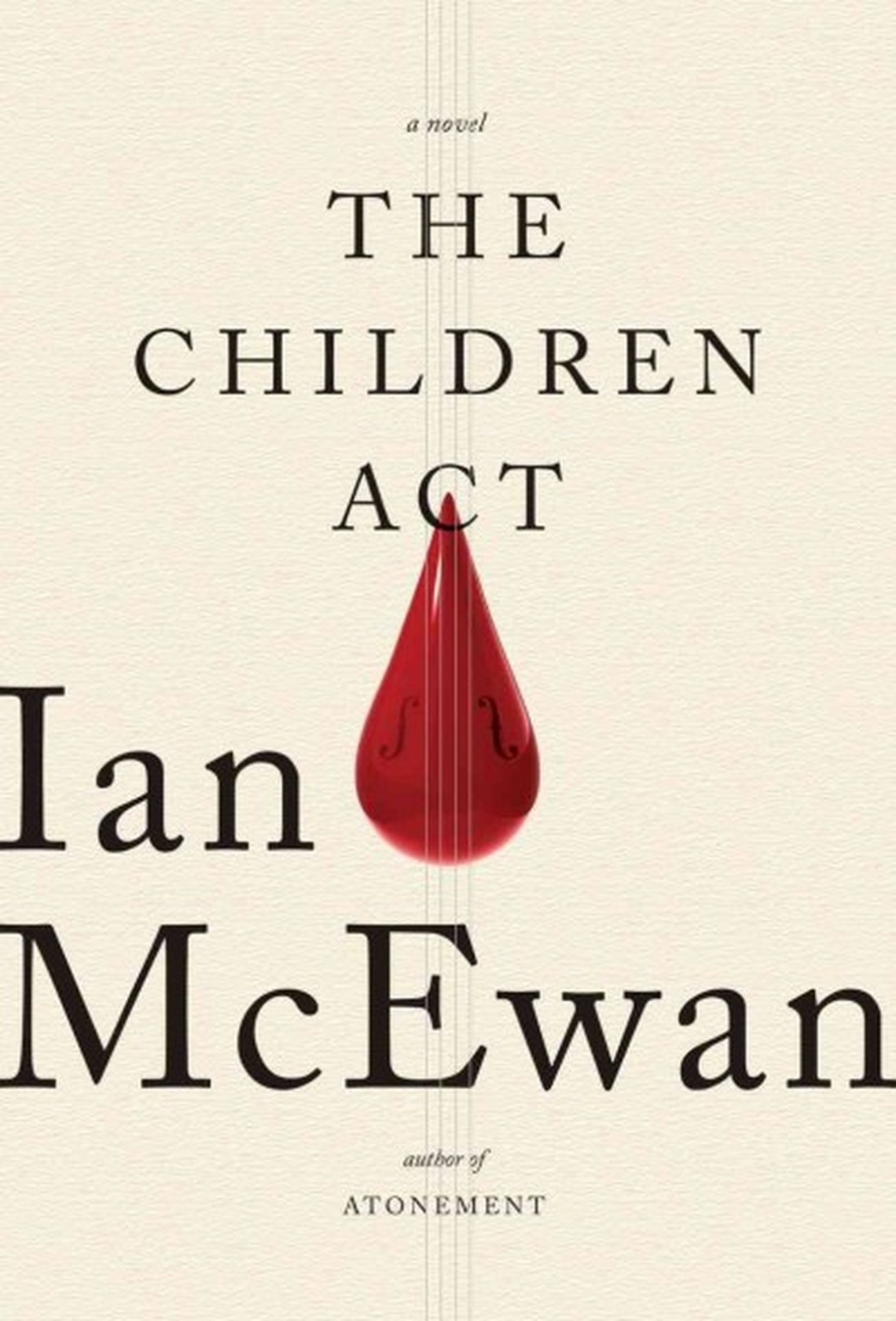British novelist Ian McEwan is interested in the profound consequences of hastily made decisions on the lives of ordinary people. In his most famous work, Atonement, a young girl’s mistaken report of her sister’s rape lands an innocent man in prison and permanently estranges her sister from her family. In the novella On Chesil Beach, an awkward exchange between a couple on their wedding night reveals an unbridgeable gap between the two, leading to annulment. Now, McEwan turns his attention to the decision-making process of an English family court judge in his new novel, The Children Act.
This time, however, the judge, Fiona Maye, isn’t prone to hasty decision-making. In many ways, Fiona is the opposite of McEwan’s typically youthful protagonists. McEwan quickly establishes the fifty-nine year old judge — “My Lady” to the barristers who argue before her — as a thoughtful arbiter of justice, one whose years of law school, decades of private practice, and dozens of weighty cases factor into each decision. When we meet her, the judge has just decided a high-profile case in which she ordered the separation of conjoined twins to save one boy’s life at the expense of the other. Fiona recognized that “the legal and moral space was tight .” She found a solution in “the doctrine of necessity,” where “it was permissible to break the criminal law to prevent a greater evil.” Though her colleagues approved of her decision — “her judgment was elegant and correct, was the insiders’ view” — she was still haunted by it:
“She was unhappy, couldn’t leave the case alone, was awake at nights for long hours, turning over the details, rephrasing certain passages of her judgment, taking another tack.”
In early moments like this, McEwan paints Fiona Maye as the perfect judge: reasonable, intelligent, well-meaning, and human.
But Fiona faces another ethical challenge — she must decide whether a seventeen-year-old leukemia patient should receive a blood transfusion against his parents and his own wishes. As a Jehovah’s Witness, the patient believes that blood is a sacred, non-shareable substance. But without a transfusion, he will certainly die.
Meanwhile, Fiona’s husband tells her he wants to have an affair with a younger woman. In a less skillful writer’s hands, Fiona’s marital problems could have devolved into the clichéd trope of a highly competent woman with a messy personal life (think Bad Judge or Knocked Up). McEwan, however, gracefully inserts this storyline to elucidate Fiona’s personality. To Fiona, her husband’s request was ridiculous — “To risk all they had so that he might relive a passing thrill!” Although she is initially upset by his announcement, she calmly asks him to leave without histrionics. Both on and off the bench, she rules with her mind over her heart. Having painted the judge’s personality so completely, McEwan sets up the central drama of the novel: Can even the most reasonable judge wield the law to reach a just outcome in a case so fraught with religious and moral questions?
For the first half of the novel, the answer appears to be yes. The Judge dutifully holds a hearing on the blood transfusion case in which she patiently listens to the parents and to the doctors. But at the end of the testimony, she announces to the court that she wants to talk to the patient himself. In the most moving passage of the book, Fiona visits the seventeen-year-old whose fate lies in her hands. Adam Henry is a precocious teen who articulates all the reasons why he wants to do right by his faith and refuse the transfusion. Fiona not only interviews him but also seeks to understand him more completely by drawing out his interests in poetry and violin.
Fiona makes her decision soon after the visit. Well-reasoned and beautifully written, the decision is what we’ve come to expect from My Lady (which I won’t spoil for you). The novel could have ended here, with readers imagining the judge going off to her next case, legal triumph in hand. But The Children Act takes a turn in its second half. Several months after her decision, Fiona receives letters relating to her decision. These letters set off a series of events that lead to tragic consequences opposite to Fiona’s initial intentions. The consequences affect both Fiona’s professional and personal life, which has continued to deteriorate. The judge is forced to confront the limits of her own decision-making and to confront her ability to take responsibility for her decisions. This, I would argue, is the heart of the novel — what McEwan hopes to convey.
Like McEwan’s previous works, The Children Act explores the limits of reason. This novel will remind McEwan fans of his 2005 novel, Saturday, which follows the life of a neurosurgeon. Like Fiona Maye, Dr. Henry Perowne prides himself on his judgment. Like Fiona, Henry is also forced to question the limits of his own reasoning when a decision he makes inadvertently leads to tragedy. But where Saturday blatantly pitted science against art — in an unbelievable moment, violence is directly thwarted by poetry — The Children Act is subtler in its message.
While McEwan has great respect for his judge, he has less respect for the law. By tracing Fiona’s decision gone awry, McEwan suggests that some questions are beyond the scope of the law. By the end of The Children Act, I, like Fiona, had come to see that life doesn’t always fit nearly into the rules and rubrics that govern our lives. The question of Adam Henry’s blood transfusion — like the question of the conjoined twins — presented a lose-lose choice that no amount of deliberation could resolve. Ultimately, The Children Act shows that even rational decision-making can have unintended consequences — a lesson applicable to all of us, in the legal profession and outside of it.









